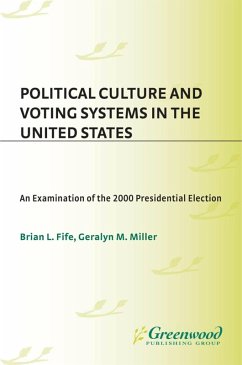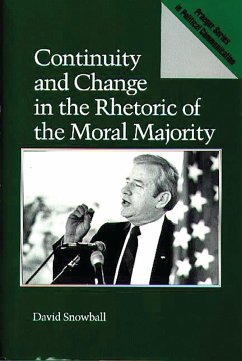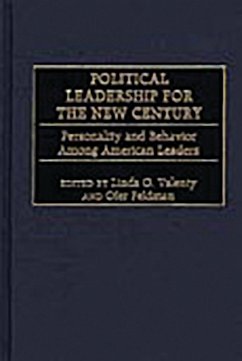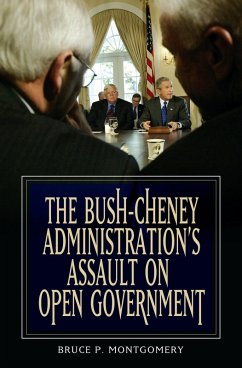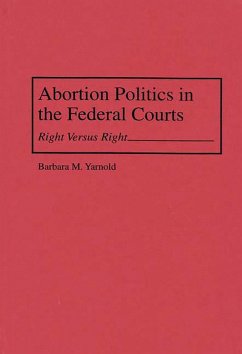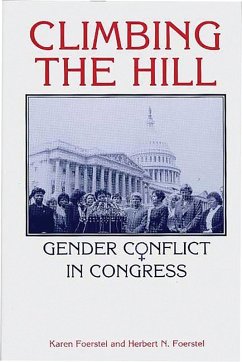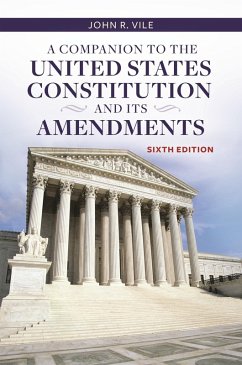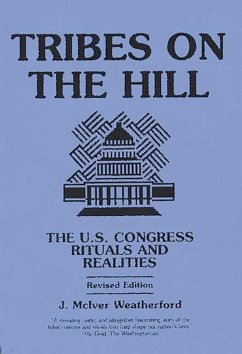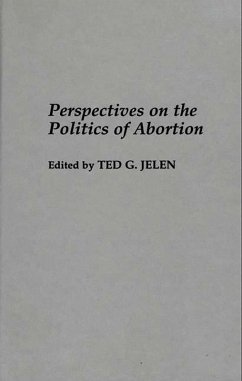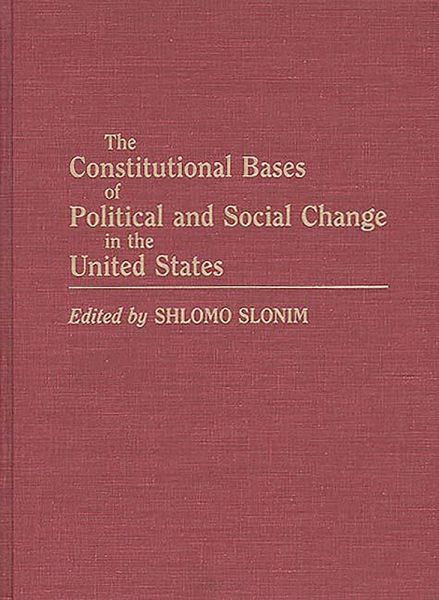
The Constitutional Bases of Political and Social Change in the United States (eBook, PDF)
Versandkostenfrei!
Sofort per Download lieferbar
59,95 €
inkl. MwSt.
Weitere Ausgaben:

PAYBACK Punkte
30 °P sammeln!
This volume collects the papers presented at a conference sponsored by the Hebrew University of Jerusalem to mark the bicentennial of the framing and adoption of the U.S. Constitution. The conference joined distinguished members of the American judiciary, bar, and academia and their Israeli counterparts in an intensive debate on the part the Constitution has assumed in American life during the 200 years of its existence. Each paper focuses specifically on one aspect of the Constitution; the subject matter ranges from executive-legislative relations to minority rights, religious freedom, and co...
This volume collects the papers presented at a conference sponsored by the Hebrew University of Jerusalem to mark the bicentennial of the framing and adoption of the U.S. Constitution. The conference joined distinguished members of the American judiciary, bar, and academia and their Israeli counterparts in an intensive debate on the part the Constitution has assumed in American life during the 200 years of its existence. Each paper focuses specifically on one aspect of the Constitution; the subject matter ranges from executive-legislative relations to minority rights, religious freedom, and constitutional reform. Throughout, comments and rebuttals are also included. Unique in its international approach to constitutional issues and developments, this volume will be of significant interest to constitutional and legal scholars. Following two papers that provide a backdrop to the debate by reviewing the historical background of the Constitution and examining the rise of the Supreme Court, the contributors move on to address such issues as: the issue of executive-legislative relations and the impacts of the Constitution on these relations over the years; the inherent tensions that exist between the establishment and free exercise clauses in the First Amendment; the question of minority rights under the Constitution as relates to both race and gender; and the newly discovered right of privacy under the constitution. Subsequent papers address whether the Constitution needs amending and explore the impact of the U.S. Constitution on Israeli jurisprudence. In the final group of essays, the contributors deal with the possible assumption by the U.S. Supreme Court of a new role--a more forthright involvement in promoting social justice.




